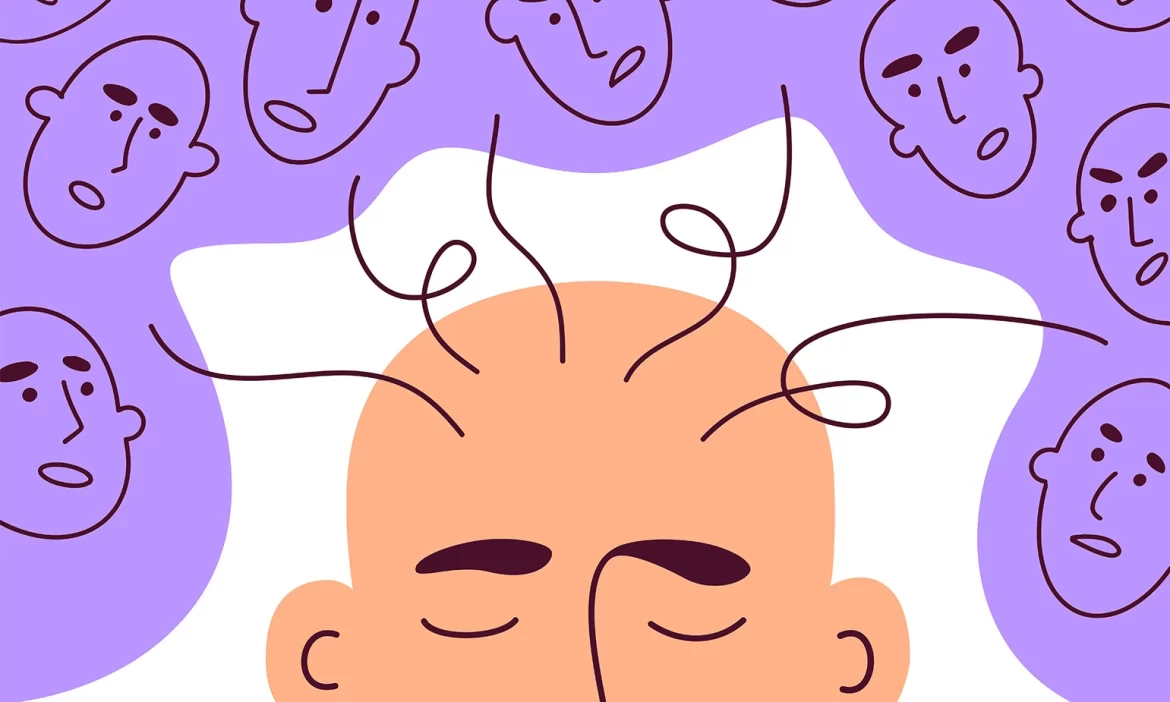Having Schizophrenia can be very difficult to live with, but there are treatments and medications that can help. This article is going to cover some of the symptoms and treatments that are available. It will also cover some of the things that you can do to help make your life easier.
Symptoms
Symptoms of schizophrenia can be a bit confusing. They can affect the way you think, behave, and socialize. If you or a loved one has symptoms of schizophrenia, it’s important to get them the help they need. There are a number of treatments for schizophrenia, including psychotherapy, psycho-education, and medication.
Symptoms of schizophrenia include hallucinations and delusions. People with schizophrenia may hear voices in their head, hear people talking to them, and even think that other people are trying to hurt them.
Disorganized speech and thinking are also a sign of schizophrenia. People with schizophrenia may talk a lot and speak rapidly, or they may use words that don’t make sense to others. They may also switch topics quickly.
Other symptoms of schizophrenia may include delusions, hallucinations, and extreme moodiness. These symptoms may be present at different stages of the disease, and are not always obvious.
The best way to know if your loved one has schizophrenia is to have a detailed conversation with him or her. Then, find a good mental health professional. These professionals can help your loved one understand the disease and offer support. They can also help your loved one develop coping skills and learn more about schizophrenia.
Diagnosis
Symptoms of schizophrenia can be difficult to diagnose. The best way to diagnose schizophrenia is to have a full psychiatric evaluation.
During a full psychiatric evaluation, a doctor will ask questions about your physical and mental health history. He or she may also use various tests to rule out other causes for your symptoms.
Schizophrenia is classified by the Diagnostic and Statistical Manual of Mental Disorders (DSM) as one of the subtypes of psychosis. Each subtype has different symptoms. For example, disorganized schizophrenia is characterized by nonsensical speech and flat emotional responses.
Hallucinations are a key symptom. They involve seeing or hearing things that aren’t real. Most people with schizophrenia hear voices, but they can also see things that aren’t there. Some people with schizophrenia also experience delusions, which are fixed false beliefs.
Symptoms of schizophrenia can develop gradually over months or years. However, some symptoms develop more quickly. The first symptoms of schizophrenia are usually noticed in late teens or early 20s.
Treatment
Managing the symptoms of schizophrenia can be a challenge, but with the right care and treatment you can improve your life. There are many different therapies that can help, from medication to support groups. These therapies can reduce stress, improve your social skills, and provide you with coping skills.
Antipsychotic medications are a common treatment for schizophrenia. These medications are designed to help manage symptoms at the lowest dose possible. There are several different types of medication available, and each one has its own side effects. Medication is used to control hallucinations, aggression, and impulsive behavior. Some medications may be taken for a long time, while others are prescribed for a short period of time.
Psychotherapy is also a good way to manage the symptoms of schizophrenia. Therapy can be used to normalize thought patterns, identify early warning signs of relapse, and work toward life goals.
Support groups are also a great way to learn coping strategies. These groups are safe, supportive places where you can meet others with schizophrenia and learn from each other. They also provide validation for your experience.
Complaining
Those who suffer from schizophrenia are likely to experience a range of cognitive complaints. These include persecutory delusions, substance use disorders, and command hallucinations. Some studies have linked these conditions to increased risk of violence, whereas others have found no link. However, the diagnosis of schizophrenia is usually based on a comprehensive assessment of signs and symptoms. In addition, patients who are severely depressed may attack a single source of difficulties. This is often a reason for early diagnosis and treatment.
Patients who experience symptoms of schizophrenia tend to describe voices in their heads as either commanding presences or running commentary. These voices are often negative in tone and attempt to humiliate the patient. They also attempt to frighten the patient.


